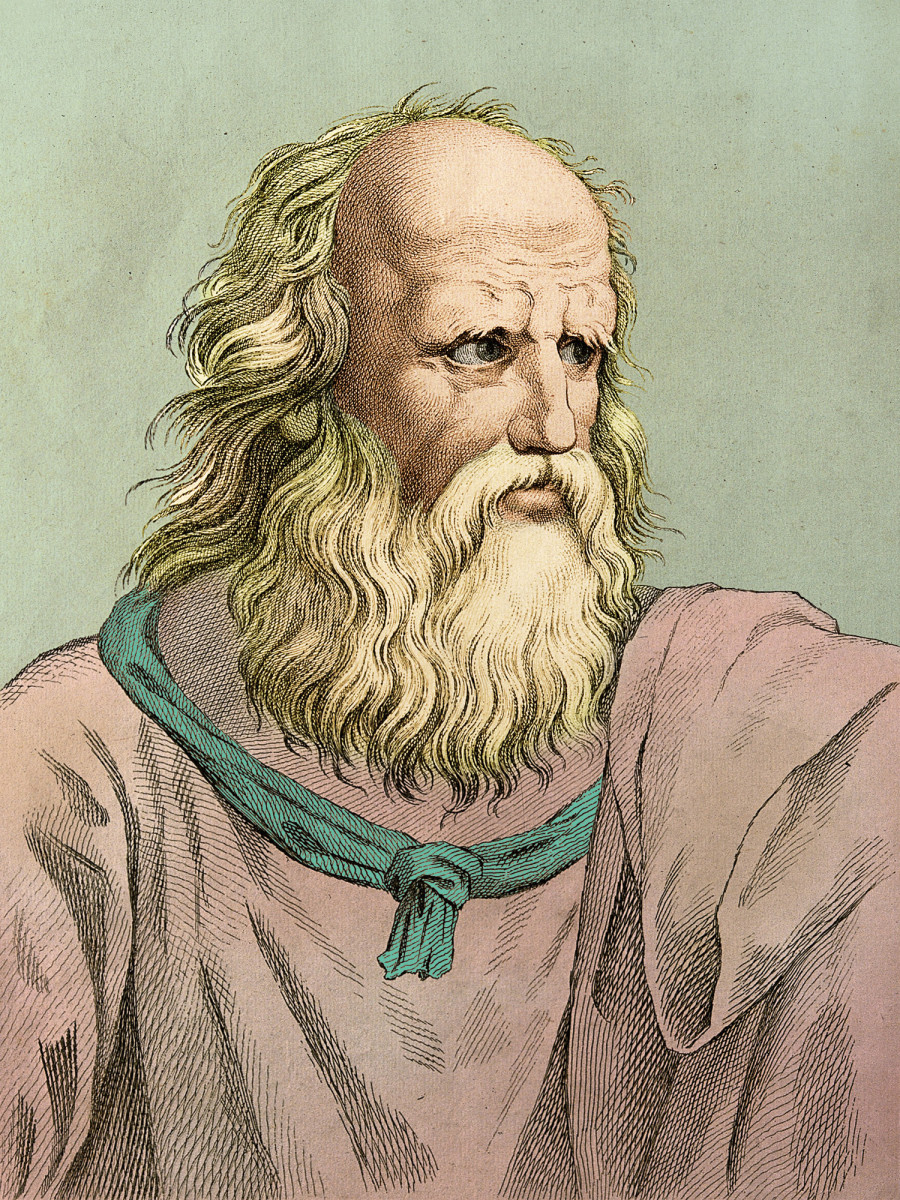
When we consider the foundational figures of Western philosophy, one name that invariably comes to mind is Plato. He was born in Athens, Greece, around 428 or 427 BCE and played a pivotal role in shaping philosophical thought. Not only was he a profound philosopher in his own right, but he also had the unique distinction of being a student of the great Socrates, whose teachings profoundly influenced him. Furthermore, Plato went on to become the mentor of Aristotle, another towering figure in philosophy. His contributions to various fields, including ethics, politics, metaphysics, and epistemology, are nothing short of monumental. The dialogues he penned, featuring Socratic questioning and exploring complex ideas, continue to resonate with scholars and thinkers even in contemporary times. Plato’s theories, such as the Theory of Forms and his vision of an ideal state, have sparked countless debates and discussions throughout history. As we explore the life, works, and enduring legacy of this extraordinary thinker, we gain valuable insights into the very essence of philosophical inquiry and its relevance in our lives today.
1. Early Life and Background

1.1 A Noble Birth
Plato was born into a prominent aristocratic family in ancient Athens, a lineage that afforded him a unique perspective on the world around him. His father, Ariston, proudly claimed descent from the god Poseidon, which not only elevated the family’s status but also instilled in Plato a sense of connection to the divine. His mother, Perictione, had familial ties to the renowned lawgiver Solon, a figure celebrated for his contributions to Athenian democracy and legal reform. Growing up amidst such distinguished heritage, Plato was immersed in the rich political and philosophical discourse of his era, which undoubtedly influenced his intellectual development and future contributions to philosophy.
1.2 The Influence of Socrates
Plato’s philosophical journey took a significant turn when he became a devoted disciple of Socrates, one of the most influential thinkers of his time. Socrates was renowned for his unique method of inquiry, characterized by probing questions and dialectical discussions that encouraged critical thinking and challenged prevailing beliefs. This transformative relationship had a profound impact on Plato’s own philosophical outlook and writings. The tragic events surrounding Socrates’ trial and subsequent execution in 399 BCE left an indelible mark on Plato, motivating him to explore themes of justice, virtue, and the nature of knowledge in his works, ultimately shaping the foundation of Western philosophy.
2. The Academy: A Revolutionary Institution

2.1 Founding the Academy
In the year 387 BCE, the renowned philosopher Plato established the Academy, an institution that is frequently regarded as the first university in the Western world. This groundbreaking establishment quickly became a vibrant center for intellectual discourse, attracting scholars and thinkers from various fields. The Academy served as a nurturing ground for philosophical inquiry, mathematical exploration, and scientific investigation. It was within these hallowed halls that Plato imparted his knowledge to a diverse group of students, including the illustrious Aristotle, while simultaneously refining and expanding his own philosophical theories. The Academy not only laid the groundwork for future educational institutions but also significantly influenced the trajectory of Western thought.
2.2 The Curriculum of the Academy
Plato placed a strong emphasis on the significance of science and mathematics within the curriculum of the Academy. He firmly believed that a solid understanding of these disciplines was essential for uncovering the profound truths that underpin existence. The educational approach at the Academy extended far beyond mere philosophical discussions; it was designed to provide a well-rounded and comprehensive education. Students were encouraged to engage with various subjects, fostering a holistic understanding of the world around them. This multifaceted curriculum not only cultivated critical thinking skills but also prepared students to tackle complex questions about reality, ethics, and the nature of knowledge itself.
3. Major Works and Philosophical Ideas

3.1 The Republic: A Vision of Justice
Among the many influential texts authored by Plato, The Republic stands out as one of his most renowned works, delving deeply into the intricate concept of justice and the framework of an ideal society. Through a series of dialogues, Plato articulates the notion of the philosopher-king, a ruler whose governance is motivated not by personal ambition or self-interest, but rather by a profound commitment to the welfare of the community as a whole. This revolutionary idea posits that the most enlightened individuals, those who possess wisdom and understanding, are best suited to lead. The Republic continues to serve as a foundational text in the field of political philosophy, prompting ongoing discussions about the nature of justice and the role of leadership in society.
3.2 The Theory of Forms
Another pivotal element of Plato’s philosophical framework is the Theory of Forms. In this theory, he posits that beyond our tangible, physical world exists a transcendent realm of perfect, abstract forms or ideas. For example, while we may encounter numerous manifestations of beauty in our everyday lives, the true essence of Beauty itself resides in this higher, ideal realm. This profound concept has ignited extensive debates and interpretations throughout the annals of philosophical history, as thinkers grapple with the implications of such a dualistic view of reality.
3.2.1 Forms and Reality
Plato argues that the physical world we perceive is merely a shadow or reflection of the authentic reality represented by these forms. This perspective challenges individuals to look beyond mere appearances and to seek out deeper, more profound truths that lie beneath the surface. To illustrate this idea, one might liken it to watching a film; while the screen displays the action unfolding, the true narrative and meaning exist behind the scenes, waiting to be uncovered.
3.3 Dialogues: A Unique Literary Style
Plato’s philosophical works are predominantly composed in the form of dialogues, where various characters engage in rich and thought-provoking discussions. This distinctive literary style not only renders his ideas more accessible to a broader audience but also encourages readers to actively participate in the philosophical discourse. Among his most notable dialogues are Phaedrus, Symposium, and Phaedo, each of which explores different themes and concepts, inviting readers to reflect on their own beliefs and understanding of the world.
4. The Legacy of Plato

4.1 Influence on Western Philosophy
Plato’s impact on Western philosophy is immeasurable. His ideas laid the groundwork for future philosophers, including his student Aristotle. The discussions on ethics, politics, and metaphysics that he initiated continue to resonate in contemporary thought.
4.2 The Academy’s Enduring Influence
The Academy itself became a model for future educational institutions. Its emphasis on critical thinking and inquiry paved the way for the modern university system. Today, we still value the principles of education that Plato championed.
5. Conclusion: Why Plato Matters Today

So, why should we care about Plato in the 21st century? His exploration of fundamental questions about justice, truth, and the nature of reality challenges us to think critically about our own beliefs and society. In a world filled with information and noise, Plato’s call to seek deeper understanding remains as relevant as ever.
6. Quick Reference Table: Key Aspects of Plato’s Philosophy

| Aspect | Description |
|---|---|
| Birth | 428/427 BCE, Athens, Greece |
| Major Works | The Republic, Phaedrus, Symposium, Phaedo |
| Philosophical Ideas | Theory of Forms, Justice, Philosopher-King |
| Influence | Foundation of Western philosophy, model for universities |
| Death | 348/347 BCE, Athens, Greece |
In summary, Plato’s life and works offer a treasure trove of insights that continue to inspire and provoke thought. Whether you’re a seasoned philosopher or just curious about the world, engaging with Plato’s ideas can enrich your understanding of life itself. So, what are you waiting for? Dive into his dialogues and discover the wisdom that has stood the test of time!

